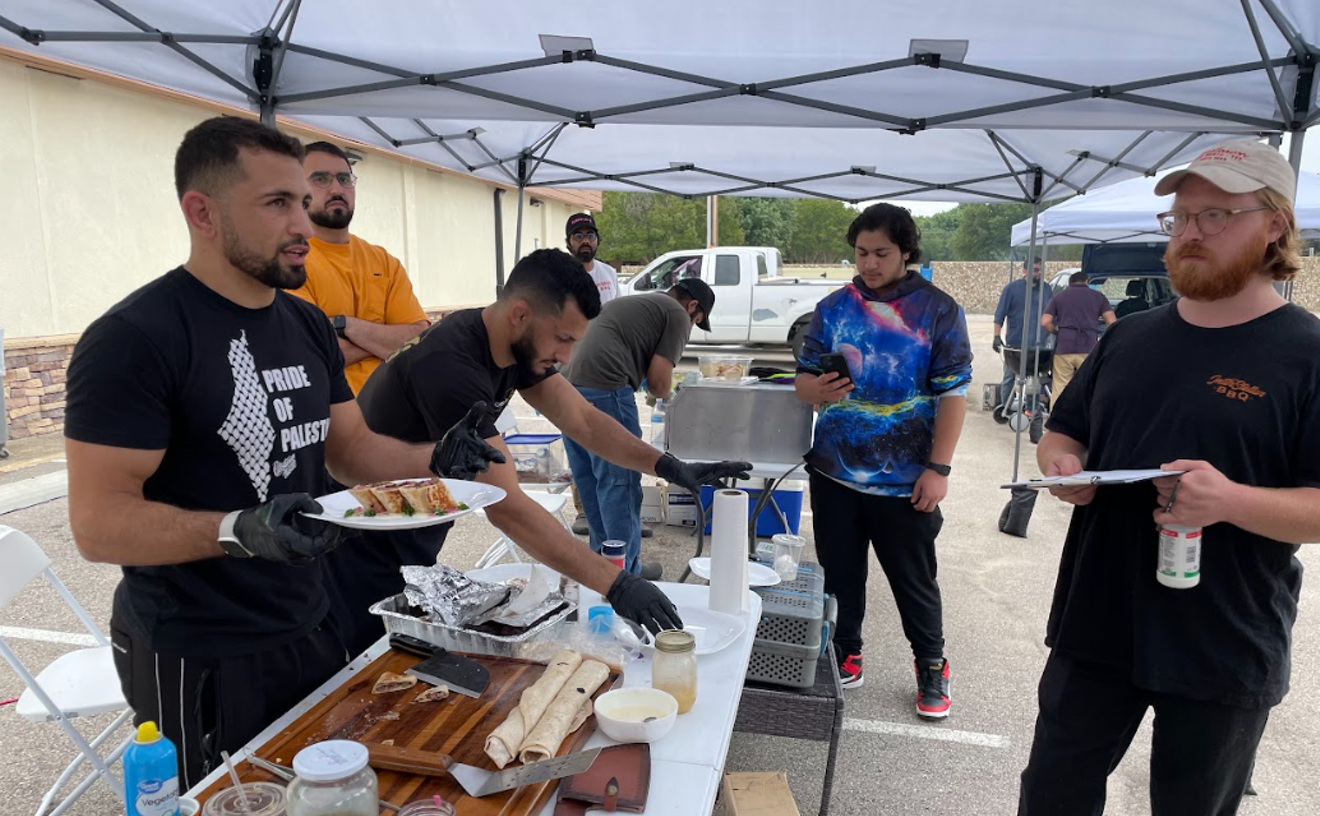On Tuesday morning the Business and Commerce Committee convened at the capitol in Austin to discuss, among other things, the future of beer in the state of Texas. In the front of the room, some of Texas' most powerful state senators sat behind their nameplates at a long curved table. Facing them in the back of the room stood some of Texas' most popular craft brewers, trimmed out in dark suits and starched white shirts.
For years Texas craft brewers have made trips to the capitol to plead their case for a tweaks to the three-tired system that shapes alcohol code, changes they say would better accommodate the modern market place but in the past have been fought by established wholesalers and giant breweries that make their livings off the existing system. Still, this session looked promising. Legislators and representatives from across the industry had been meeting over the past year to work on legislation that could open the taps for craft brewers. There shouldn't have been any surprises.
See also: - Dallas Senator John Carona Files Bill that Would Close a Tap for Craft Brewers
But there was -- a big one that could raise the cost of six-packs statewide or perhaps bring a whole body of carefully crafted compromises crashing down. Again.
Chairman of the committee, Senator John Carona of Dallas, noticed the large crowds amassed in the back of the room and, seeking to quell a bit of tension in the air, addressed the group and asked them not to worry.
"Take a deep breath," were his exact words.
The nerves are understandable. Years of negotiation and work have been put into this. In the last legislative session, the craft brewers went home empty-handed after their bills died in committee.
After that session, Carona created "working groups" to hash out all these issues. It was a great show of leadership -- everyone get in a room, work it out, figure out your differences, find compromises. All the parties involved had more than a year to work on it.
The result was four bills authored by Senator Kevin Eltife of Tyler and introduced two weeks ago. Collectively, the bills cover most of the main issues, like allowing brewers to sell a small amount of beer at their breweries and letting brewpubs sell beer at the retail level, things not allowed under the current system with its strict segregation of manufacturers who sell to distributors who sell to retailers who sell to you.
Brock Wagner of Saint Arnold's Brewing Co. took a seat at a small table in front of the committee to voice his support of Eltife's bills:
"Over 100,000 people visited our brewery last year," said Wagner, "but we weren't allowed to sell them a single drop of beer. If we were able to capitalize on that, even minimally, it would have a big impact on business."
Wagner pointed out that other breweries around the country that opened the same year as his are four to 10 times larger than his now. He told the committee the state's restrictive beer laws are the reason why.
Scott Metzger of Freetail Brewing Co. in San Antonio testified next in favor of the bills. He explained that he could make more money if he moved outside the state. In-state brewpubs aren't allowed to sell beer at the retail level, but brewpubs headquartered in, say, California can, and do -- in Texas, as a matter of fact.
This was the easy part of the meeting. There were no negative comments about Eltife's bills.
But, then an elephant dropped into the middle of the room. During the last week of February, Carona (again, the man who created the working groups) introduced a new bill, Senate Bill 639, that would turn the entire beer industry on its head. Not only does this proposed legislation shock craft brewers, it even caused the major players in the industry, like Anheuser-Busch and a bevy of other groups, to gasp.
For the next 20 minutes, representatives from these groups took the stand in three-minute increments to make their case for why SB 639 should die a quick (perhaps painful) death. We reported on one aspect of the bill last week, which would prohibit craft brewers from selling their distribution rights to wholesalers; they'd just have to give them away, which would be a financial and marketing blow.
But another huge component of Carona's bill would affect every beer that hits a shelf in a retail store in Texas. It would establish a standard price at the manufacturer level for beer throughout the state and, in the end, would certainly affect the retail price.
Another measure would end self-distribution for breweries, which would be 10-steps back for craft breweries.
Carona filed this bill less than two weeks before this meeting and it was the first time most people had heard of these proposed laws. At no time did he bring the issues in SB 639 to his very own working groups. In a play right out of Let's-Jam-This-Thing-Through legislative manual, at one point Carona addressed his committee and the crowd with a directive to move SB 639 through quickly.
"And my understanding is that now that this [SB 639] has appeared in the public forum, an answer needs to be figured out this session," Carona said. "It's not something we can pass on or ignore because it really places the TABC, among others, in a precarious spot."
Again: working groups. For a year.
It's not often that a representative from a major brewer shows up in the same room as craft brewers, but Keith Diggs, a vice president at Anheuser Busch took the same seat Wagner sat in and said AB strongly opposes SB 639. In an attempt to point out the irony, Diggs applauded the creation of the working groups the previous year and in the same breath pointed out that the issues weren't brought up during those meetings.
And here's where every beer drinker in the state needs to listen, Diggs went on to explain that the result of "these government enacted price controls would increase prices for consumers across the state."
Diggs called the SB 639 anti-competitive, anti-consumer, and pointed out that Texas is a vast and diverse state, "It's best to let the free-market work. What goes on in East Texas is different than in Brownsville."
In very broad strokes,for a brewery based in Houston (like AB), shipping beer to, say, Lubbock, obviously costs more than sending it to Galveston. Under Carona's bill, AB would have to sell beer to their distributors for both places at the same price. Which price do you think AB would choose -- the higher one or the lower one? Beyond that, retailers can charge whatever price they want.
Tony Bennett with Texas Association of Manufactures testified against the bill and said it, "interferes with private contractual business transactions that have become commonplace ... and imposes unnecessary government intervention and price controls aimed at picking winners and losers in the marketplace."
Rick Donley with the Beer Alliance of Texas said the bill amounts to price fixing.
Bill Hannon with the Texas Association of Businesses said the bill is anti-competitive and establishes price controls. Even the Texas Retail Association made an appearance to oppose the bill.
About this point Senator Leticia Van de Putte of San Antonio, who spent a lot of time with the working groups for the past year, was clearly agitated by being blindsided with SB 639. She asked Diggs of Anheuser Busch if, in his 25 years of experience in the beer industry, he had seen such provisions work in other states.
Diggs explained that similar legislation was introduced in Arkansas recently and the price of beer across the state went up "exponentially."
There was one person in the room in favor of the bill. A representative of the Wholesale Beer Distributors of Texas, the group behind SB 639, testified in favor.
Van de Putte explained, as patiently as she could, "We tried for the last year to identify all of those issues that might be a problem and try to address them and if there are specifics that you feel we still haven't addressed ... we've only been looking at this for about a year."
One of the last speakers against the bill was Mario Loyola of the Texas Public Policy Foundation, who called the bill "very simply a government-sponsored price-fixing cartel."
Loyola then explained how this would affect your weekend plans:
"So, the distributors would be able to charge whatever price they wanted to retailers, but the manufacturers would only be able to charge one price to them. From the consumers point of view, that is the worst of all possible worlds."
The only group that benefits from the passage of this bill are the distributors.
A little later as the co-chair of the committee read the names of those who oppose the bill, a person off-camera chided Carona, "It takes talent to get a bill with this many people against it."
They all laughed.
Clerks continued to bring small pieces of white paper to the committee from people that oppose the bill and they struggled to pronounce some of the names, like "Rahr" and "Peticolas." At one point Carona called DEBC co-founder John "Beerdon," instead of Reardon, which was actually perfect. Quickly after all the names are read, the committee closed public testimony on the bill, at which point Carona looked at the room full of his fellow Texans and admonished them:
"I want a deal one way or the other by 5 p.m. next Monday. So all of you need to understand that's the deadline and if you don't meet that deadline, I'm pushing this legislation to the very end of the session. So you've got a week to work on it."
One week to work on a bill that could completely turn the beer industry on its head. Too bad they didn't have something like a yearlong working group to hash out the details and consider all the ramifications.
Deep breath, brewers. Deep breath.











